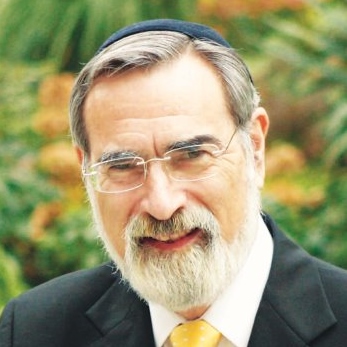click to dowload our latest edition
CLICK HERE TO SUBSCRIBE TO OUR NEWSLETTER


Published
5 years agoon
By
adminRABBI LORD JONATHAN SACKS
Kohelet’s failure to find meaning is directly related to his obsession with the “I” and the “me”. “I built for myself. I gathered for myself. I acquired for myself.” The more he pursues his desires, the emptier his life becomes. There’s no more powerful critique of the consumer society, whose idol is the self, whose icon is the “selfie”, and whose moral code is “whatever works for you”. This is the society that has achieved unprecedented affluence, giving people more choices than they have ever known, and yet at the same time has experienced an unprecedented rise in alcohol and drug abuse, eating disorders, stress-related syndromes, depression, attempted suicide, and actual suicide. A society of tourists, not pilgrims, is not one that will yield the sense of a life worth living. Of all things people have chosen to worship, the self is the least fulfilling. A culture of narcissism quickly gives way to loneliness and despair.
Kohelet was also, of course, cosmopolitan – a man at home everywhere and therefore nowhere. This is the man who had 700 wives and 300 concubines, but in the end could only say, “More bitter than death is the woman.” It should be clear to anyone who reads this in the context of the life of King Solomon, the author of the book, that Kohelet is not really talking about women but about himself.
In the end, Kohelet finds meaning in simple things. “Sweet is the sleep of a labouring man.” “Enjoy life with the woman you love.” “Eat, drink and enjoy the sun.” That, ultimately, is the meaning of Sukkot as a whole. It’s a festival of simple things. It is, Jewishly, the time we come closer to nature than any other, sitting in a hut with only leaves for a roof, and taking in our hands the unprocessed fruits and foliage of the palm branch, the citron, twigs of myrtle, and leaves of willow. It’s a time when we briefly liberate ourselves from the sophisticated pleasures of the city and the processed artefacts of a technological age, where we take time to recapture some of the innocence we had when we were young, when the world still had the radiance of wonder.
The power of Sukkot is that it takes us back to the most elemental roots of our being. You don’t need to live in a palace to be surrounded by clouds of glory. You don’t need to be gloriously wealthy to buy yourself the same leaves and fruit that a billionaire uses in worshipping G-d. Living in the sukkah and inviting guests to your meal, you discover that the people who have come to visit you are none other than Abraham, Isaac, Jacob and their wives (such is the premise of ushpizin, the mystical guests). What makes a hut more beautiful than a home is that when it comes to Sukkot, there’s no difference between the richest of the rich and the poorest of the poor. We are all strangers on earth, temporary residents in God’s almost eternal universe. And whether or not we are capable of pleasure, whether or not we have found happiness, nonetheless we can all feel joy.
Sukkot is the time we ask the most profound question about what makes a life worth living. Having prayed on Rosh Hashanah and Yom Kippur to be written in the Book of Life, Kohelet forces us to remember how brief life actually is, and how vulnerable. “Teach us to number our days that we may get a heart of wisdom.” What matters is not how long we live, but how intensely we feel that life is a gift we repay by giving to others. Joy, the overwhelming theme of the festival, is what we feel when we know that it is a privilege simply to be alive, inhaling the intoxicating beauty of this moment amidst the profusion of nature, the teeming diversity of life, and the sense of communion with those many others who share our history and our hope.
Most majestically of all, Sukkot is the festival of insecurity. It’s the candid acknowledgment that there’s no life without risk, yet we can face the future without fear when we know we are not alone. G-d is with us, in the rain that brings blessings to the earth, in the love that brought the universe and us into being, and in the resilience of spirit that allows a small and vulnerable people to outlive the greatest empires the world has ever known. Sukkot reminds us that G-d’s glory was present in the small, portable tabernacle Moses and the Israelites built in the desert even more emphatically than in Solomon’s Temple with all its grandeur. A temple can be destroyed. But a sukkah, even if broken, can be rebuilt tomorrow. Security is not something we can achieve physically, but it’s something we can acquire mentally, psychologically, and spiritually. All it needs is the courage and willingness to sit under the shadow of G-d’s sheltering wings.
• Rabbi Lord Jonathan Sacks served as the chief rabbi of the United Hebrew Congregations of the Commonwealth from 1991 to 2013. He is an international religious leader, philosopher, award-winning author, and respected moral voice. The article is taken from www.rabbisacks.org.
